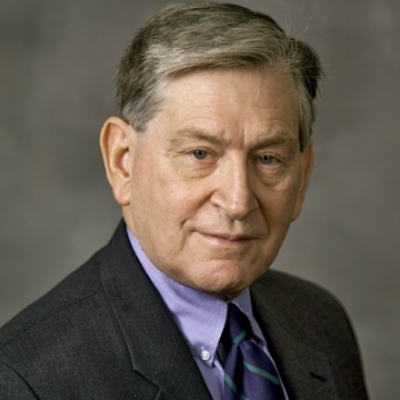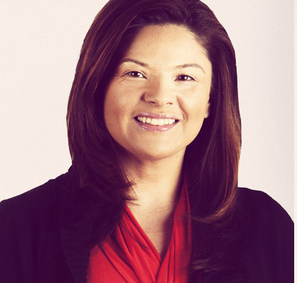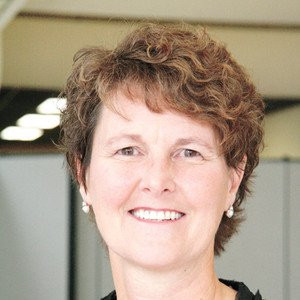It’s All About Education: Do We Really Value Diversity in Schools?
Wednesday, October 07, 2015
A couple of weeks ago, 700,000 people used the hashtag #IStandWithAhmed to show support for 14-year-old Ahmed Mohamed. Ahmed was falsely arrested and suspended from his Texas high school for bringing in a homemade clock, which his teachers mistook for a bomb. Since then, Ahmed has received invitations to talk shows, companies like Google, and even the White House.
But not everyone is ready to defend Ahmed. Breitbart News, a conservative opinion site, asserts that Ahmed’s sister was suspended 3 years ago for making an alleged bomb threat; both the Federalist and the National Review, two websites known for their conservative viewpoints, have published articles questioning the legitimacy of Ahmed’s homemade clock and his motives. Why is it so hard for some people to see a young Muslim boy as just that – a boy?
The saddest thing about Ahmed’s story is that his is not an isolated incident. Recently, Boston’s NPR station WBUR published an article by Linda K. Wertheimer, author of Faith Ed: Teaching about Religion in an Age of Intolerance. Wertheimer refers to her conversations with numerous Muslim students around the country who have been bullied in school and have been the butt of jokes and ridicule because of their religion.
GET THE LATEST BREAKING NEWS HERE -- SIGN UP FOR GOLOCAL FREE DAILY EBLASTFor two centuries, America has been known as a melting pot, welcoming people from all different cultures and backgrounds – are we still? Karime Alvarado, a senior at Ahmed’s school, has become a social activist at the tender age of 16. She told Colorlines that she speaks out because “there is a small percentage of students in all schools that are misinformed and uneducated on topics such as racial profiling, racism, Islamophobia, homophobia, etc.”
Karime’s statement reminds us that religious intolerance isn’t the only kind of bigotry in our schools. New America reports that the young children of immigrants, who make up 25% of all students under the age of 8 in America, often face discrimination at school. Critical comments from peers or teachers, name-calling, narrowed learning opportunities – these are all common experiences for a quarter of our students.
In Providence, our schools are extremely diverse: 64% of our public school students identify as Hispanic, 17% African American, 9% Caucasian, 5% Asian, 3% multiracial and 1% Native American. Although there is no data on religious diversity in the public schools, one would imagine that many different backgrounds and varying methods of worship abound.
I asked my friend Wendy, who lives with her family in East Greenwich, RI, what it’s like to be one of the very few Muslim families in the community. She said that, although the 7th grade public school curriculum includes world religions and that the community has been very accepting of their family, there have been a couple of incidents that have given her pause.
One of Wendy’s daughters greeted a Muslim friend with the phrase, “Allahu Akbar,” which means “God is great” and is the beginning of the Islamic call to prayer. A classmate became very upset with her, saying, “How can you say that?! It means ‘Death to all Americans’!” Wendy’s daughter gently corrected him, and explained the true meaning. It must be frustrating to be the only representative of your religion, often called upon to refute misconceptions.
Wendy’s older daughter is in the process of deciding whether she would like to wear a hijab, or head scarf. She has begun experimenting by wearing a hijab to school for a week at a time – and she is very excited to plan her outfits to match. A comment by a well-meaning teacher helped Wendy to realize that most non-Muslims assume that a woman wearing a hijab is being forced to wear it by her family or her religious leaders. Instead, Wendy explained, the head scarf represents a covenant with God – and in America, women make a choice as to whether or not they wish to wear it.
On the Teaching Tolerance website, one teacher commented that, "Schools are the one place where all of these different religions meet. It follows that religious diversity must be dealt with in school curriculum if we're going to learn to live together." Yet many teachers are uninformed about various religions themselves, and they feel ill-equipped to teach students about them.
As a result, teachers often invite parents in to present to students in the class; Wendy was invited in to talk about their traditions, just as Jewish parents are sometimes invited in to share Hanukkah celebrations and Hindu parents are sometimes asked to explain Diwali. Involving parents in education is always a good practice, but there should be a more institutionalized way to teach about religious and cultural differences in all schools.
If we truly value diversity – and frankly, this country (and this state!) was built on it – we must ensure that our schools teach respect and compassion. And we can start by modeling it ourselves. The next time you see someone in a head scarf, ask yourself if you are seeing the scarf or the person. And then smile and say hello.
Lauri Lee is an independent consultant with over twenty years of experience in both public and private education, with learners from infants through adults. With experience in teaching, marketing, communications, social media, development, admissions, and technology, she is able to synthesize many of the issues facing our educational system today. She lives in Providence, RI with her family, a big dog, and a small cat. She blogs at http://www.AllAboutEducation.net and you can follow her on Twitter at @fridovichlee.
Related Slideshow: RI Experts on the Biggest Issues Facing Public Education
On Friday November 22, the Hassenfeld Institute for Public Leadership at Bryant University, the Latino Policy Institute of Roger Williams University, the Rhode Island Association of School Committees, the Providence Student Union, and RI-CAN: Rhode Island Campaign for Achievement Now will host Rhode Island leaders in the public and nonprofit sectors for a symposium on "the civil rights issue of the 21st century, adequacy and equity and the State of Education in Rhode Island."
Weighing in on the the "three biggest factors" facing education in the state today are symposium participatnts Gary Sasse, Founding Director of the Hassenfeld Institute for Leadership; Christine Lopes Metcalfe, Executive Director of RI-CAN; Anna Cano-Morales, Chairwoman of the Board of Trustees, Central Falls Public Schools and Director, Latino Policy Institute at Roger Williams University; Tim Duffy, Executive Director, RI Association of School Committees; and Deborah Cylke, Superintendent of Pawtucket Public Schools.
Related Articles
- It’s All About Education: How Poverty Impacts Brain Development and Learning
- It’s All About Education: Making a Commitment to Rhode Island’s Children
- It’s All About Education: Re-Imagining Our Educational System
- It’s All About Education: Can Education Drive Social Change?
- It’s All About Education: School Choice - Vouchers and Tax-Credit Scholarships Don’t Pay
- It’s All About Education: Failure to Launch - It’s Not Just a Movie
- It’s All About Education: How Breakfast Could Help Close the Achievement Gap
- It’s All About Education: Choosing the Right School for Your Child
- It’s All About Education: After School Programs Make a Difference
- It’s All About Education: Learning Life Skills at Hope High
- It’s All About Education: High-Quality Early Learning: Necessary For All
- It’s All About Education: The Arts, Education, and Transformation
- It’s All About Education: Could Competency-Based Learning Be the Wave of the Future?
- It’s All About Education: The Benefits of Intergenerational Programs
- It’s All About Education: The Most Wonderful Time of the Year?
- It’s All About Education: Just Let Them Play
- It’s All About Education: Kids Learn Through Experience
- It’s All About Education: Why So Many Choose Progressive Education
- It’s All About Education: What Kids Learn from Sports
- It’s All About Education: A Broader Definition of Education
- It’s All About Education: Reading for Pleasure Predicts Academic Success
- It’s All About Education: Divine Providence: Engaging Community
- It’s All About Education: Why Summer Vacation Should Be Just That
- It’s All About Education: Why Poverty Affects More than the Poor













